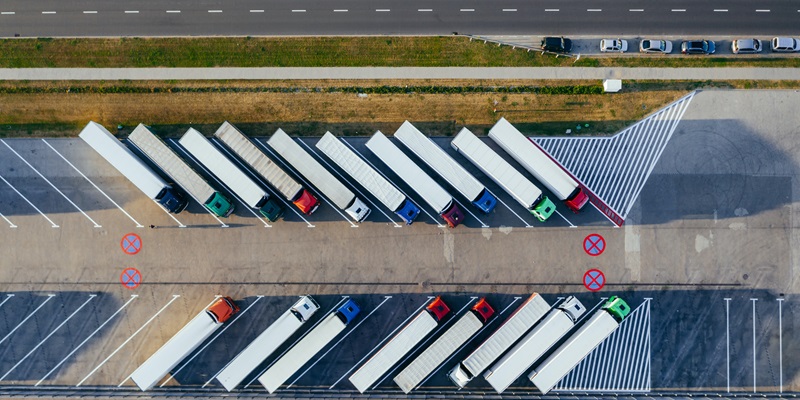Miami, renowned for its vibrant culture and stunning beaches, is also emerging as a crucial transport and logistics hub, serving as a vital link between the United States, Latin America, and the Caribbean. With increasing demands on its infrastructure and supply chain efficiency, Miami has embraced technological advancements to enhance transport effectiveness, safety, and sustainability, solidifying its position as an innovator in the industry.
Technological advancements in Miami’s transportation sector
Miami has witnessed significant strides in adopting cutting-edge technologies throughout its transportation sector. These advancements bring about a multitude of benefits, including improved efficiency, reduced costs, enhanced safety measures, and optimized resource utilization. Embracing these technologies has positioned Miami as a pioneer in transforming transportation and logistics.
The role of autonomous vehicle technology in improving efficiency and safety is significant
Autonomous Vehicle Technology (AVT) has emerged as a game-changer in the transportation industry. Miami recognizes the potential of self-driving cars and trucks to revolutionize its roads and highways. AVT vehicles have the capacity to improve efficiency and safety by leveraging artificial intelligence, machine learning, and advanced sensors. These vehicles can automatically adjust their speed and spacing in response to traffic conditions, thereby reducing congestion and accidents.
Reducing traffic congestion through autonomous vehicle technology
Miami faces persistent traffic congestion challenges. AVT vehicles offer a promising solution. By leveraging their ability to communicate with each other and the surrounding infrastructure, these vehicles can optimize traffic flow, prevent gridlock, and minimize delays. The integration of AVT vehicles in Miami’s transportation network has the potential to relieve congestion and offer a smoother travel experience to residents and visitors alike.
Integration of AI for intelligent traffic management in Miami
Miami has embraced the power of Artificial Intelligence (AI) to develop an intelligent traffic management system. This system utilizes AI algorithms to analyze real-time data collected from various sources such as sensors, cameras, and GPS. By processing this data, the system can automatically adjust traffic signals, allocate resources, and detect anomalies in traffic patterns. Through this integration, Miami aims to reduce congestion, improve traffic flow, and enhance overall transportation efficiency.
Utilizing IoT devices for real-time tracking and enhancing traffic flow
Internet of Things (IoT) devices have transformed transportation and logistics operations by enabling real-time tracking of vehicles and goods. In Miami, IoT devices play a critical role in optimizing traffic flow, minimizing delays, and averting accidents. These devices collect and transmit data regarding vehicle positions, speeds, and conditions, allowing traffic managers to promptly respond to incidents, adjust routes, and optimize traffic signals. The integration of IoT devices in Miami’s transportation network has vastly improved overall efficiency and safety.
Blockchain for secure and transparent tracking in transportation and logistics
Miami recognizes the significance of secure and transparent tracking in the transportation and logistics sector. With the implementation of blockchain technology, the city ensures that every step of the supply chain process, from origin to destination, remains tamper-proof and transparent. Blockchain enables secure tracking of goods, verifying their authenticity and integrity. Additionally, it facilitates secure and seamless payment transactions, reducing fraud and ensuring fair and transparent financial exchanges.
The impact of 5G on transportation and logistics in Miami is significant
As the era of 5G looms closer, Miami anticipates further transformations in the transportation and logistics industry. The implementation of 5G technology will revolutionize connectivity, enabling faster and more reliable communication between vehicles, infrastructure, and logistics networks. This enhanced connectivity will greatly improve traffic management, safety systems, and overall transportation efficiency. The speed and low latency of 5G will unlock new possibilities for intelligent transportation systems, autonomous vehicles, and real-time data analytics.
Miami’s leadership in transportation technology with RFID, facial recognition, and intelligent traffic management
Miami stands at the forefront of transportation technology, leading the way with innovative solutions. The utilization of RFID tags has streamlined operations at the Port of Miami, enhancing cargo tracking and minimizing delays. Facial recognition technology at Miami International Airport has improved security and expedited passenger processing, ensuring a seamless travel experience. Moreover, Miami’s intelligent traffic management system, driven by AI algorithms and real-time data, has successfully alleviated congestion and improved traffic flow.
The future of drone technology for delivery in Miami’s transportation sector
Drones have revolutionized last-mile deliveries, and Miami eagerly embraces the potential of this technology in transforming its transportation sector. With the ability to navigate through congested areas and deliver packages swiftly, drones offer a promising future for Miami’s transport and logistics industry. From medical supplies and consumer goods to emergency response services, drones will redefine delivery efficiency and speed, further enhancing Miami’s reputation as a technologically advanced transport hub.
Miami’s transportation and logistics industry has undergone a remarkable transformation through the adoption of innovative technologies. From autonomous vehicles and intelligent traffic management to IoT devices and blockchain, Miami is at the forefront of implementing cutting-edge solutions. These advancements have significantly improved efficiency, safety, and sustainability in the transportation sector. As Miami continues to invest in technology-driven solutions, its leadership in the industry is set to thrive, shaping a brighter future for transportation and logistics in the region.

